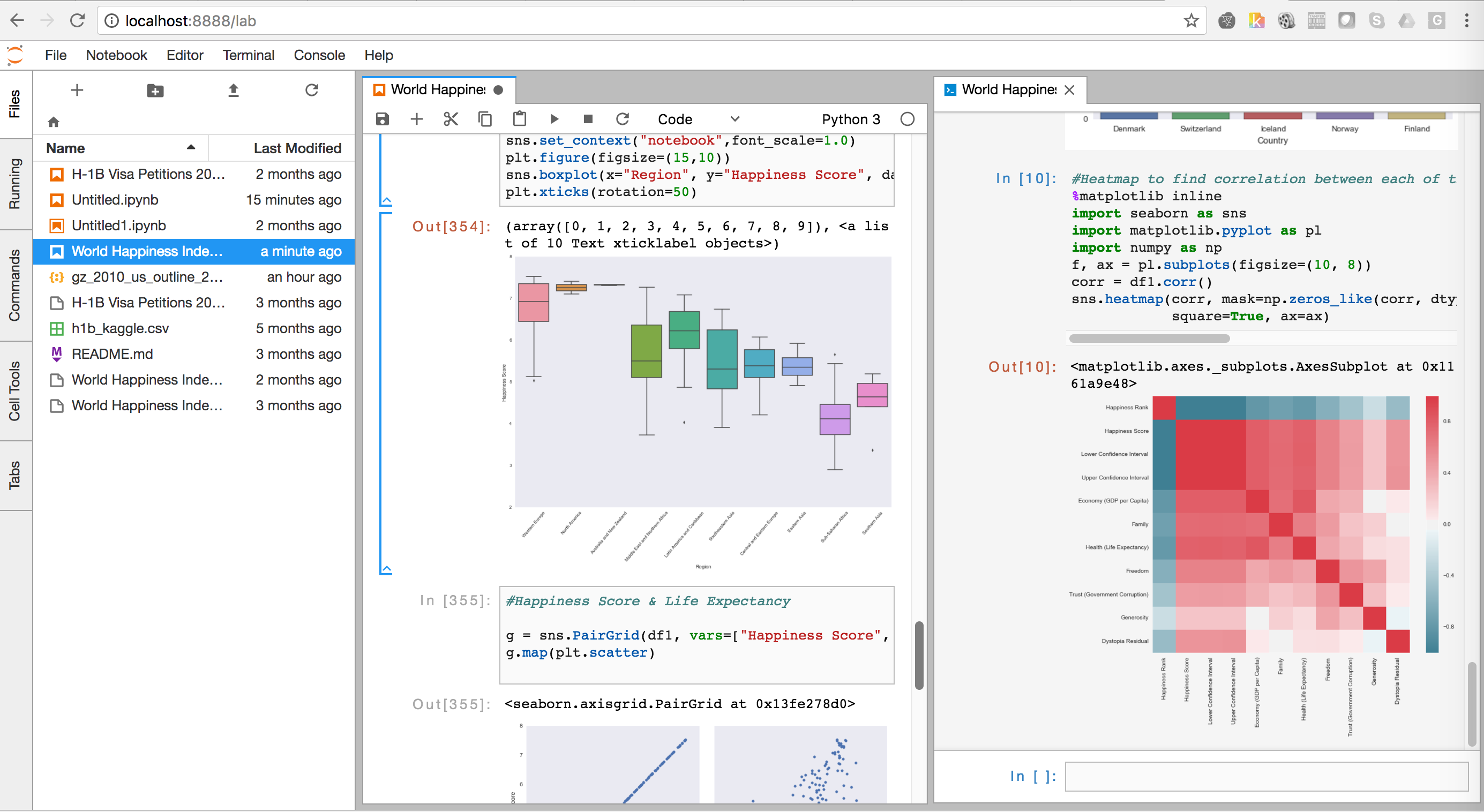

refresh is turned off if the Git tab is hidden). refreshIfHidden: whether to refresh even if the Git tab is hidden default to false (i.e.Displaying a larger number of commits can lead to performance degradation, so use caution when modifying this setting. histor圜ount: number of commits shown in the history log, beginning with the most recent.doubleClickDiff: double click a file in the Git extension panel to open a diff of the file instead of opening the file for editing.In which case, setting this to false should reduce visual noise. Depending on the level of extension activity, some users may find the status updates distracting. If true, the extension displays status updates in the JupyterLab status bar, such as when pulling and pushing changes, switching branches, and polling for changes. displayStatus: display Git extension status updates in the JupyterLab status bar.When set to true, this setting guards against overwriting and/or losing uncommitted changes. disableBranchWithChanges: disable all branch operations, such as creating a new branch or switching to a different branch, when there are changed/staged files.commitAndPush: Whether to trigger or not a push for each commit default is false.If set to true, when fetching and integrating changes from a remote repository, a conflicting merge is canceled and the working tree left untouched. cancelPullMergeConflict: cancel pulling changes from a remote repository if there exists a merge conflict.Setting this to false allows for actions to trigger multiple concurrent Git actions. Unless running a slow network, UI suspension should not interfere with standard workflows. Setting this to true helps mitigate potential race conditions leading to data loss, conflicts, and a broken Git history. blockWhileCommandExecutes: suspend JupyterLab user interaction until Git commands (e.g., commit, pull, reset, revert) finish executing.Once installed, extension behavior can be modified via the following settings which can be set in JupyterLab's advanced settings editor: You should now be able to pull and push committed changes to and from your remote repository using the respective buttons on the top of the extension's panel. Tell your local Git repository to connect to remote via ssh.Optionally, if you have more than one key managed by your ssh agent: Create a config file for the ssh-agent.Register the public part of it to your Git server:.Here are the steps to follow to set up SSH authentication (skip any that is already accomplished for your project): > This is a new feature since v0.37.0 SSH protocol > You can set a longer cache timeout see Server Settings. To use the caching, you will need toĬheck the option Save my login temporarily in the dialog asking your credentials. The extension can cache temporarily (by default for an hour) credentials. > In order to connect to a remote host, it is recommended to use SSH. It will automatically set up a credential manager.
Pycharm jupyterlab install#
Or with conda: conda install -c conda-forge jupyterlab jupyterlab-gitįor JupyterLab For Windows users, it is recommended to install git for windows. To install perform the following steps, with pip: pip install -upgrade jupyterlab jupyterlab-git Open the Git extension from the Git tab on the left panel.JupyterLab >= 3.0 ( older version available for 2.x).To see the extension in action, open the example notebook included in the Binder demo. A JupyterLab extension for version control using Git


 0 kommentar(er)
0 kommentar(er)
